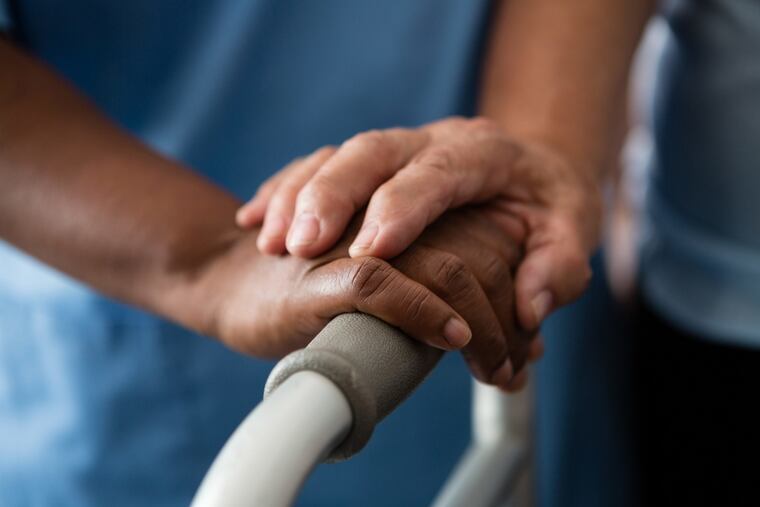Caregivers in Pa. and N.J. provide $31 billion in free care. AARP says that’s ‘unsustainable.’
Caregiving is becoming more complex. Caregivers need more training and help, the organization said.

A new report from AARP estimates that in 2017, the nation’s 41 million family caregivers provided $470 billion worth of unpaid care to their loved ones.
It said about 12% of Pennsylvania and New Jersey adults are caregivers. Pennsylvanians provided $18.2 billion in care compared with $12.9 billion for caregivers in New Jersey.
The report, released Thursday, is based on an analysis of four surveys of family caregivers between 2015 and 2018.
It said family caregiving is becoming more difficult and complex because caregivers are helping people with more challenging needs and are often juggling work and family responsibilities. Sixty percent of caregivers also work either full- or part-time.
While caregiving can be deeply rewarding, the report said, caregivers often are physically and emotionally exhausted, and feel unprepared to do the work required. Money is an issue for many. Caregivers often have to spend their own money to help a loved one who needs care. They also can find it difficult to keep working while dealing with a loved one’s medical needs.
“The expectation that families alone will provide care for an older person or an adult with a chronic, disabling, or serious health condition is unsustainable,” the report said.
The organization called for a national strategy that would help caregivers financially, reduce the complexity of care, and support the health of caregivers, who are at higher risk for health problems than people who are not taking care of family members.
It suggested that states and the federal government offer a tax credit for family caregiving and consider changes to address the effect that dropping out of the workforce to become a caregiver has on Social Security benefits. It also called for more job flexibility for caregivers and a prohibition against discrimination based on family caregiving responsibilities. The health-care system also needs to do a better job of identifying and supporting caregivers, the report said.